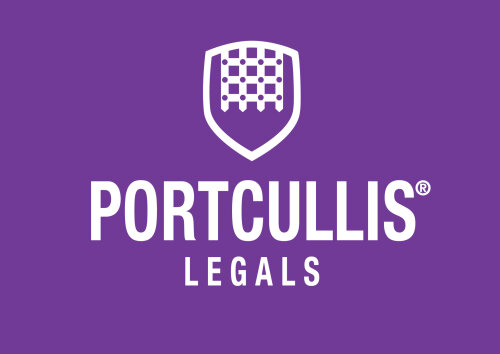Best Private Client Lawyers in United Kingdom
Share your needs with us, get contacted by law firms.
Free. Takes 2 min.
Or refine your search by selecting a city:
List of the best lawyers in United Kingdom
About Private Client Law in United Kingdom
Private client law in the United Kingdom covers a range of legal services relating to individuals and families, rather than businesses or corporations. It usually involves helping people to manage, protect, and transfer their personal wealth or interests, both in life and after death. Common areas include drafting wills, setting up and administering trusts, handling probate and estate administration, tax planning, lasting powers of attorney, and advising on issues involving mental capacity or vulnerable clients. The aim is to ensure that a person’s assets and interests are legally protected and distributed according to their wishes.
Why You May Need a Lawyer
There are several situations where obtaining legal advice in private client matters is highly recommended. Some common scenarios include:
- Writing or updating a will to ensure your assets are distributed according to your wishes
- Setting up trusts to provide for family members or to protect assets for future generations
- Administering the estate of a family member or friend who has died (probate)
- Inheritance tax planning to help minimise tax liabilities for your beneficiaries
- Appointing a lasting power of attorney so someone can handle your finances and welfare if you cannot
- Planning for care home fees and other later-life financial concerns
- Protecting the rights and interests of vulnerable family members
- Resolving disputes over inheritances or asset distribution
- International estate matters, such as owning assets abroad
- Gifting assets during your lifetime
Private client solicitors guide individuals through complex legal processes, provide clarity, and ensure compliance with the law, helping to avoid costly mistakes or future disputes.
Local Laws Overview
Private client law in the United Kingdom is based on a combination of statute and common law. Key areas include:
- Wills and Probate: English and Welsh law allows individuals to leave assets to whomever they choose, though close family members may claim under the Inheritance (Provision for Family and Dependants) Act 1975 if reasonable provision is not made. Scotland has a different system of legal rights for spouses and children. Probate is the legal process of administering the estate of a deceased person.
- Trusts: Trusts are legal arrangements where one or more persons manage assets for the benefit of others. There are various types of trusts, each suited to different needs, and each has implications for tax and succession planning.
- Taxation: Inheritance tax, capital gains tax, and income tax can all impact private client matters. Efficient planning can help to manage or reduce tax liabilities.
- Mental Capacity and Powers of Attorney: The Mental Capacity Act 2005 governs decisions made on behalf of those who lack capacity. Lasting Power of Attorney allows someone to nominate another to manage their affairs if needed.
- Family Law Interactions: Private client work often intersects with family law, such as divorce or cohabitee issues, especially when dealing with jointly owned assets.
Special consideration should be given to the differences that may apply in Scotland and Northern Ireland, which have their own legal systems and rules regarding succession, wills, and probate.
Frequently Asked Questions
What happens if I die without a will in the United Kingdom?
If you die without a valid will, your estate is distributed according to intestacy rules. This often means assets pass to your closest relatives as defined by law, which may not align with your wishes.
Can I leave my assets to anyone I choose?
Generally, yes. In England and Wales, you have wide freedom to distribute your estate as you wish, but certain close relatives may be able to make a claim if they have not been reasonably provided for.
How do I set up a trust, and why might I need one?
A solicitor can help you set up a trust to manage assets for beneficiaries, protect wealth, assist with tax planning, or provide for vulnerable individuals. Trusts must be established by a formal legal document and administered according to trust law.
What is probate, and when is it required?
Probate is the legal process of proving a will and administering the estate of a deceased person. It is typically required if the deceased owned property or had significant assets in their sole name.
What taxes might apply to my estate after I die?
Inheritance tax is the main tax on estates in the United Kingdom. There may also be capital gains tax and income tax issues, especially if assets were sold before completion of estate administration.
What is a Lasting Power of Attorney (LPA), and why should I have one?
An LPA is a legal document allowing you to appoint a trusted person to handle your financial affairs or make medical decisions if you lose capacity. It is highly recommended for everyone, regardless of age.
How can I avoid disputes over my will or estate?
Clear and professionally drafted wills, open family discussions, and regular reviews of your arrangements can all help minimise disputes. A solicitor can provide guidance and draft robust documents.
Are there different private client laws in Scotland and Northern Ireland?
Yes, both Scotland and Northern Ireland have distinct legal systems and inheritance laws. Seek advice relevant to your jurisdiction, especially regarding succession rights and probate.
What should I do if I want to provide for a disabled or vulnerable family member?
Specialist trusts, such as discretionary or vulnerable beneficiary trusts, can be set up to protect assets and ensure proper care for vulnerable individuals. Get specialist legal advice for these situations.
I own property abroad. How will this affect my UK will or estate?
Owning property in another country can complicate estate planning due to different local laws. You may need separate wills for each jurisdiction and should always seek advice from solicitors familiar with international issues.
Additional Resources
If you need more information or support relating to private client matters in the United Kingdom, the following resources can be very helpful:
- Gov.uk: The official government website provides guidance on wills, probate, inheritance tax, powers of attorney, and more.
- The Law Society: Offers a searchable directory to help you find regulated solicitors specialising in private client work.
- Citizens Advice: Delivers free, confidential, and impartial advice on a wide range of legal matters, including wills and probate.
- Solicitors for the Elderly: A specialist group supporting vulnerable and older clients with legal advice.
- Office of the Public Guardian: Oversees powers of attorney and helps protect people who lack mental capacity.
- STEP (Society of Trust and Estate Practitioners): An international group of qualified experts in trusts and estates, with a comprehensive directory of providers.
Next Steps
If you need legal assistance with a private client matter, consider taking the following steps:
- Identify your main concerns or questions, such as making a will, planning for inheritance tax, or setting up a trust.
- Gather relevant information and documents, including any existing wills, property deeds, financial statements, and details about family members or intended beneficiaries.
- Contact a solicitor who specialises in private client law. Make sure they are regulated and experienced in the area relevant to your needs.
- Schedule an initial consultation to discuss your situation and receive tailored advice. Most solicitors offer fixed-fee consultations for wills, probate, and similar services.
- Stay proactive about keeping your arrangements up to date, especially after significant life events such as marriage, divorce, or the birth of children or grandchildren.
Professional legal support can help you avoid costly mistakes, ensure your wishes are followed, and provide peace of mind for you and your loved ones.
Lawzana helps you find the best lawyers and law firms in United Kingdom through a curated and pre-screened list of qualified legal professionals. Our platform offers rankings and detailed profiles of attorneys and law firms, allowing you to compare based on practice areas, including Private Client, experience, and client feedback.
Each profile includes a description of the firm's areas of practice, client reviews, team members and partners, year of establishment, spoken languages, office locations, contact information, social media presence, and any published articles or resources. Most firms on our platform speak English and are experienced in both local and international legal matters.
Get a quote from top-rated law firms in United Kingdom — quickly, securely, and without unnecessary hassle.
Disclaimer:
The information provided on this page is for general informational purposes only and does not constitute legal advice. While we strive to ensure the accuracy and relevance of the content, legal information may change over time, and interpretations of the law can vary. You should always consult with a qualified legal professional for advice specific to your situation.
We disclaim all liability for actions taken or not taken based on the content of this page. If you believe any information is incorrect or outdated, please contact us, and we will review and update it where appropriate.
Browse private client law firms by service in United Kingdom
United Kingdom Attorneys in related practice areas.
Browse private client law firms by city in United Kingdom
Refine your search by selecting a city.

















